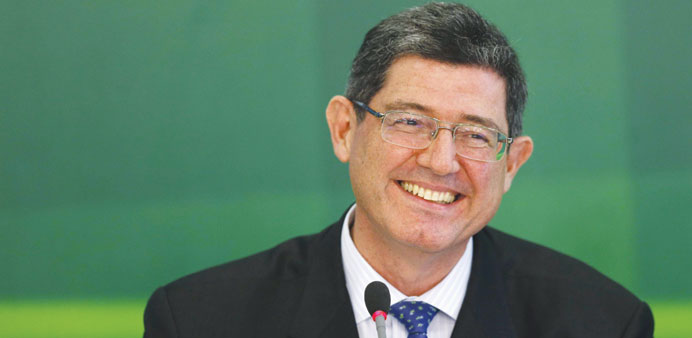Reuters/Lima
Brazilian top economic policymakers tried to reassure investors that Latin America’s largest economy will weather a deepening political crisis that threatens to unseat embattled President Dilma Rousseff.
The growing risk of an impeachment after an audit court ruled this week that the leftist leader doctored government accounts to hide a massive deficit last year have kept local markets under pressure. In a surprisingly candid comment, Finance Minister Joaquim Levy acknowledged to a crowd of investors at the International Monetary Fund’s annual meeting in Peru that he was unsure whether Rousseff will face impeachment.
Still, Levy said he was confident unpopular austerity measures will be approved by a restive Congress to shore up the public accounts and pull the economy out of its worst recession in 25 years.
“Our main challenge now is how we adjust to some changes in economic environment,” Levy said. “I’m confident that as soon as we get the budget and fiscal outlook clear... we will regain (economic) growth.”
The rapid fall from grace of a once-booming Brazil is the most dramatic example of the sharp slowdown that major emerging economies are experiencing after a decade-long commodities bonanza. The Brazilian economy is expected to contract nearly 3% this year.
Tensions between Rousseff and her wide-ranging alliance in Congress have hurt an economy already struggling with a drop in consumer demand and record-low confidence levels.
Although widely respected in markets, Levy has started to lose his influence in the Rousseff administration after clashing with top cabinet members over the size of the fiscal adjustment.
At an event on Thursday, Brazilian central bank chief Alexandre Tombini said the country’s long-term inflation goals are likely to be met despite recent market turbulence caused by political uncertainty.

